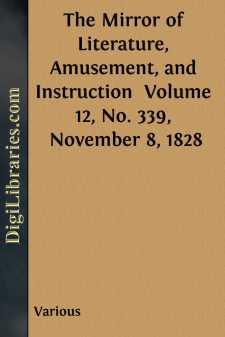Categories
- Antiques & Collectibles 13
- Architecture 36
- Art 48
- Bibles 22
- Biography & Autobiography 816
- Body, Mind & Spirit 145
- Business & Economics 28
- Children's Books 17
- Children's Fiction 14
- Computers 4
- Cooking 94
- Crafts & Hobbies 4
- Drama 346
- Education 58
- Family & Relationships 59
- Fiction 11834
- Foreign Language Study 3
- Games 19
- Gardening 17
- Health & Fitness 34
- History 1378
- House & Home 1
- Humor 147
- Juvenile Fiction 1873
- Juvenile Nonfiction 202
- Language Arts & Disciplines 89
- Law 16
- Literary Collections 686
- Literary Criticism 179
- Mathematics 13
- Medical 41
- Music 40
- Nature 179
- Non-Classifiable 1768
- Performing Arts 7
- Periodicals 1453
- Philosophy 66
- Photography 2
- Poetry 897
- Political Science 203
- Psychology 45
- Reference 154
- Religion 516
- Science 126
- Self-Help 85
- Social Science 82
- Sports & Recreation 34
- Study Aids 3
- Technology & Engineering 59
- Transportation 23
- Travel 463
- True Crime 29
Our website is made possible by displaying online advertisements to our visitors.
Please consider supporting us by disabling your ad blocker.
The Mirror of Literature, Amusement, and Instruction Volume 12, No. 339, November 8, 1828
by: Various
Categories:
Description:
Excerpt
Great Milton.
Great Milton, a picturesque village, near Thame, in Oxfordshire, is entitled to notice in the annals of literature, as the family seat of the MILTONS, ancestors of Britain's illustrious epic poet. Of this original abode, our engraving is an accurate representation. One of Milton's ancestors forfeited his estate in the turbulent times of York and Lancaster. "Which side he took," says Johnson, "I know not; his descendant inherited no veneration for the White Rose." His grandfather was under ranger of the forest of Shotover, Oxon, who was a zealous Papist, and disinherited his son for becoming a Protestant. Milton's father being thus deprived of his family property, was compelled to quit his studies at Christ Church, Oxford, whence he went to London, and became a scrivener. He was eminent for his skill in music; and from his reputation in his profession, he grew rich, and retired. He was likewise a classical scholar, as his son addresses him in one of his most elaborate Latin verses. He married a lady of the name of Caston, of a Welsh family, by whom he had two sons, John, THE POET, and Christopher, who studied the law, became a bencher of the Inner Temple, was knighted at a very advanced age, and raised by James II. first to be a Baron of the Exchequer, and afterwards one of the Judges of the Common Pleas. He was much persecuted by the republicans for his adherence to the royal cause, but his composition with them was effected by his brother's interest.
Besides these two sons, he had a daughter, Anne, who was married to a Mr. Edward Philips, of Shrewsbury; by him she had two sons, John and Edward, who were educated by the poet, and from whom is derived the only authentic account of his domestic manners.
MILTON was thus by birth a gentleman; but had his descent been otherwise, his works would ennoble him to posterity.
The lord, by giddy fortune courted,
Stalks through a part by thousands played;
The minstrel, proud and unsupported,
Stands forth the Noble God has made
We sought our illustration of GREAT MILTON in the "Oxfordshire" of that voluminous and expensive work, "the Beauties of England and Wales;" but, strange to say, the family name of Milton is not even mentioned there, although the house is still
By chance or Nature's changing course untrimm'd.
The editor, however, tells us, on the authority of Leland, that there was at Great Milton a priory "many yeres syns;" and quotes the following quaint lines from a tablet in the church:—
Here lye mother and babe, both without sins, Next birth will make her and her infant, twins.ANCIENT FEASTINGS IN GUILDHALL, &c.
(For the Mirror.)
The first time that Guildhall was used on festive occasions was by Sir John Shaw Goldsmith, knighted in the field of Bosworth. After building the essentials of good kitchens, and other offices, in the year 1500, he gave here the mayor's feast, which before had usually been done in Grocers' Hall. None of these bills of fare (says Pennant) have reached me; but doubtless they were very magnificent....












